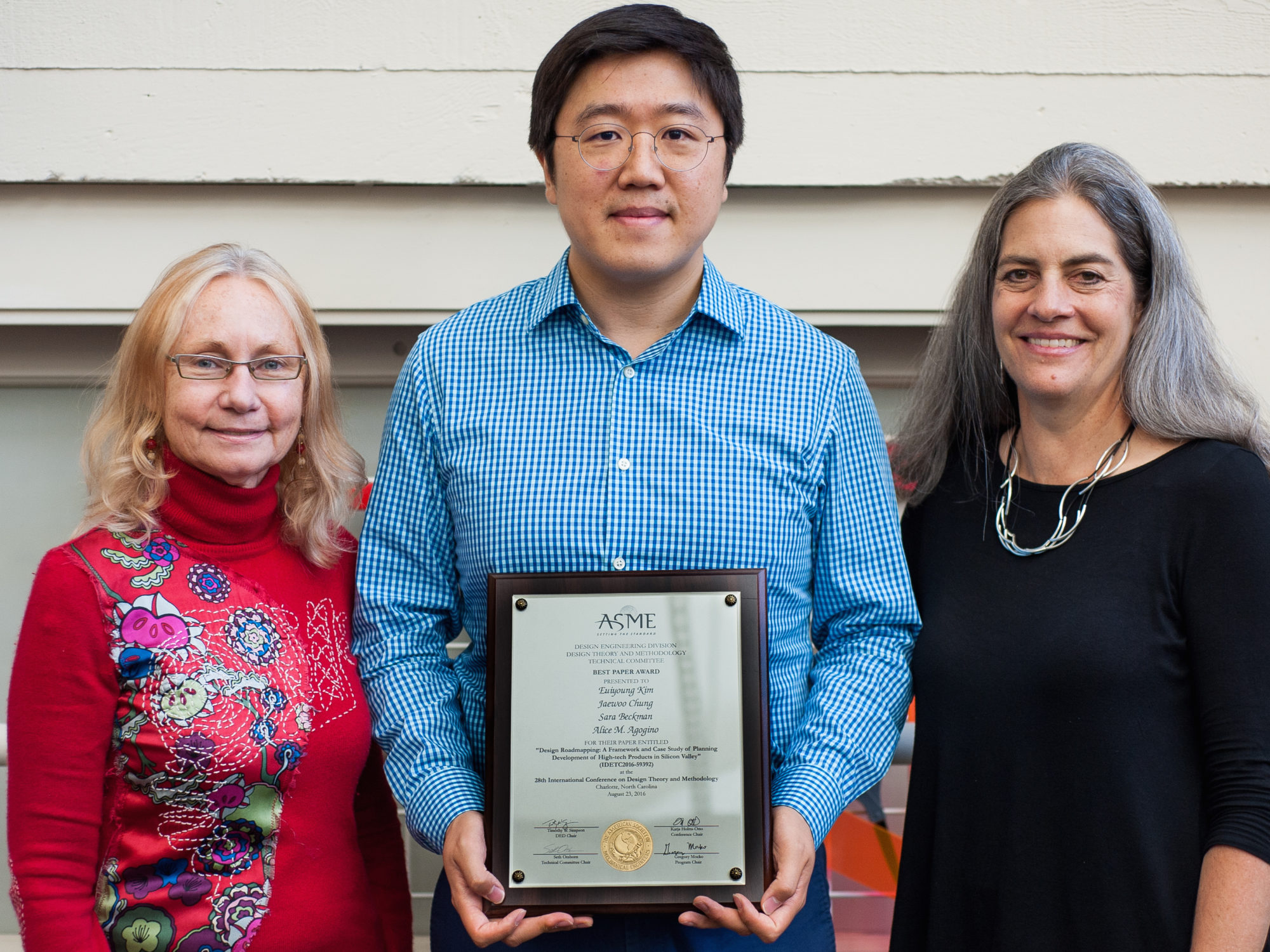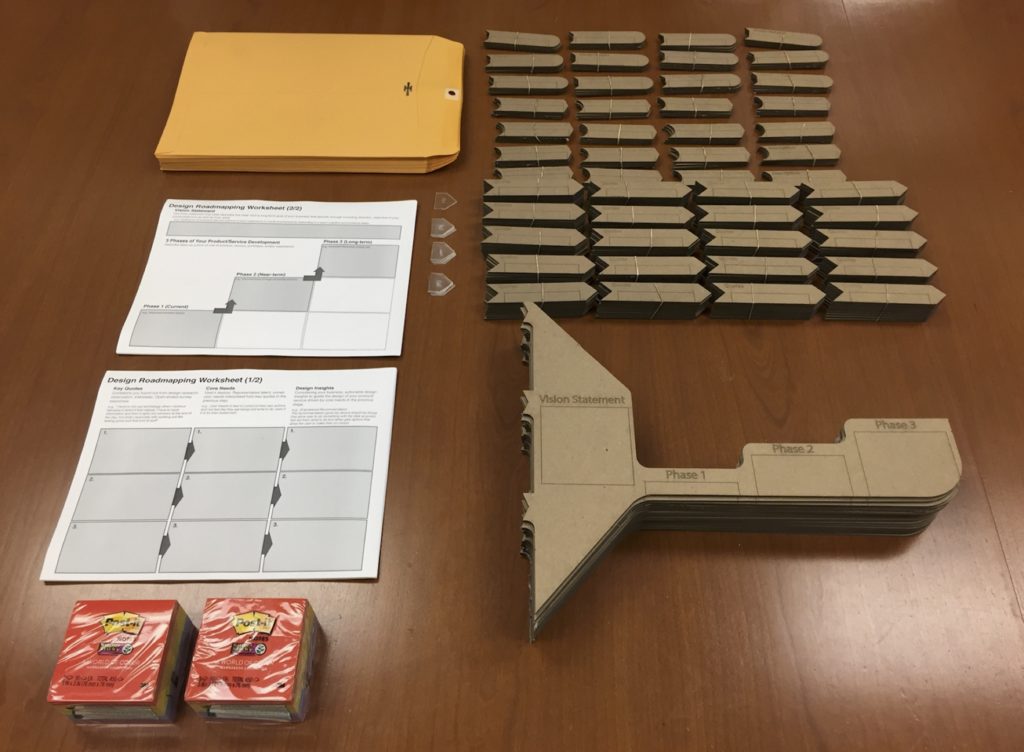The paper “Design Roadmapping: A Framework and Case Study of Planning Development of High-Tech Products in Silicon Valley” won the 2016 DTM (Design Theory & Methodology) best paper award from the American Society of Mechanical Engineers’ (ASME) at the 2016 International Design Engineering Technical Conference, Design Theory and Methods Track. The Authors were Euiyoung Kim, Jaewoo Chung, Sara Beckman and Alice M. Agogino. The topic was the subject of Euiyoung Kim’s recent 2016 doctoral dissertation: Design Roadmapping: Integrating Design Research Into Strategic Planning For New Product Development. The paper was recently published in the ASME Transactions of Mechanical Design, 138 (10), 2016. Euiyoung Kim is currently a Postdoctoral Design Fellow with the Jacobs Institute for Design Innovation at UC Berkeley.
The ASME IDETC/CIE Conference, the world’s leading design research conference, was held August 21 – 24 at the Charlotte Convection Center in Charlotte, North Carolina.
Paper Abstract: We propose a framework for design roadmapping that parallels existing product roadmapping and technology roadmapping processes. It leverages three needs we have observed in organizations as they use existing roadmapping processes: (1) to focus on development of customer and user experiences (UX), not just on features; (2) to increase engagement of designers early in the planning process; and (3) to provide a means for rapidly responding to changes in the environment. Design roadmapping is an attempt to reconcile differences that arise when customer/user needs are not considered simultaneously with technology choices. The proposed design roadmapping process assists project prioritization and selection. The process aggregates design experience elements along a timeline that associates key user needs with the products, services, and/or systems the organization wishes to deliver. To illustrate the design roadmapping process, we conducted a case study in which we applied the design roadmapping process to projects undertaken by a large corporation’s innovation lab located in research centers in San Francisco and Mountain View, CA, in partnership with corporate stakeholders located in Asia. The five-step design roadmapping procedure is provided along with detailed information. The decisions from the design roadmapping process have been incorporated into the company’s commercial plans. Key findings in this corporate case study bolster the positive impact of design roadmapping in moving strategic thinking from a technology/feature-driven process to one that is design/experience-driven. It shows how firms might weigh choices between user needs, design principles, and technological innovation.
Design Roadmapping workshops have been conducted at a number of universities (Stanford, UC Berkeley), industries (Samsung Research America, Sproutel) and professional organizations (IDSA International Conference) using either a digital webform or a tangible kit (see example below).
This is the second time the team won a best paper award on this topic. Last year, a previous paper titled “Design Roadmappping: Challenges and Opportunities” also won a Reviewer’s Favourite Award at ICED 2015 conference, which delineated a descriptive research summary on roadmapping in use based on in-depth interviews with 35 professionals in the Silicon Valley, the East Coast, and abroad.
For further detail, please visit our website.

